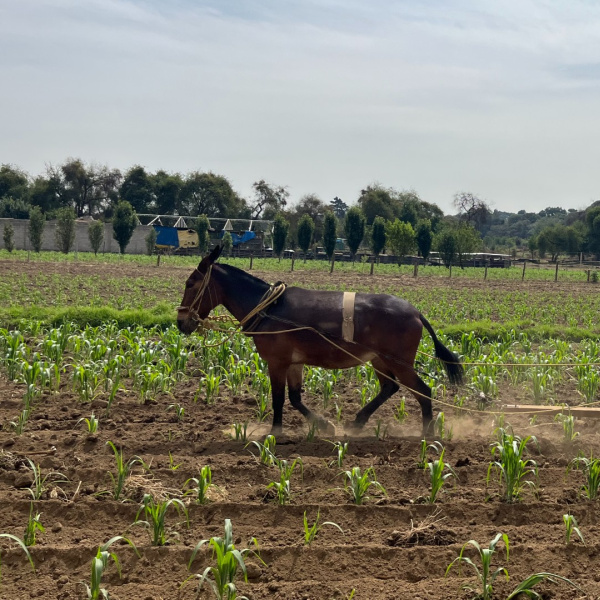This International Day for the Eradication of Poverty (17 October), we spoke with José Legarreta from our Latin America and the Caribbean team about the importance of donkeys and mules to rural communities in Mexico.
During a visit to our Sidmouth headquarters in May 2023, we spoke with José Legarreta, Community and Livelihood Partnerships Manager for The Donkey Sanctuary Latin America and the Caribbean. In this discussion, José highlighted the important role donkeys and mules play in rural communities in Mexico.
If this video doesn't show, it may be because your cookie settings need updating. Manage your cookie settings.
Four states in Mexico are of particular concern to José's team as they are reported as having the highest donkey and mule populations, as well as some of the highest poverty rates in the country. These states are Guerrero, Puebla, Veracruz and Oaxaca.
The intersection of donkey ownership and poverty presents many challenges. As José recognises, animal welfare both depends on and influences human welfare.
Within these communities, donkeys are a lifeline and a vital partner in navigating an uncertain economic landscape.
However, these exact circumstances may also mean owners cannot provide adequate care for their donkeys, a problem made worse by donkeys not being included in some government-funded welfare initiatives.
This was a key consideration during a recent partnership undertaken by José's team and the Comité Estatal de Fomento y Protección Pecuaria del Estado de Oaxaca (State Committee for Promotion and Protection of Livestock in Oaxaca), which saw the creation of a rabies prevention campaign specific to donkeys and mules that ran alongside the Government’s wider campaign.
The programme helped vaccinate 3,000 donkeys and mules against rabies in Oaxaca and raised awareness of the importance of including donkeys and mules in life-saving welfare programmes.
Projects like this are essential not only to support the wellbeing of donkeys and mules, but also to help reinforce the economic stability of vulnerable communities.
A donkey who is well cared for will live a longer, happier and healthier life and be better able to support the upward economic mobility of their community.

